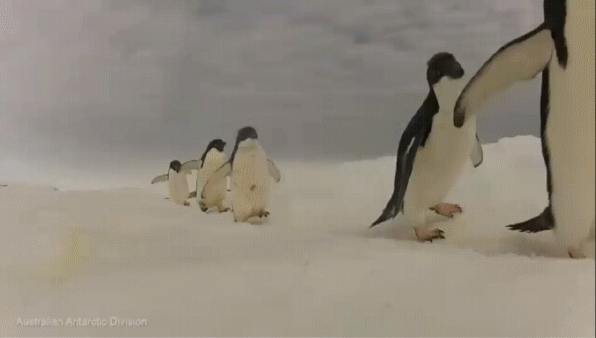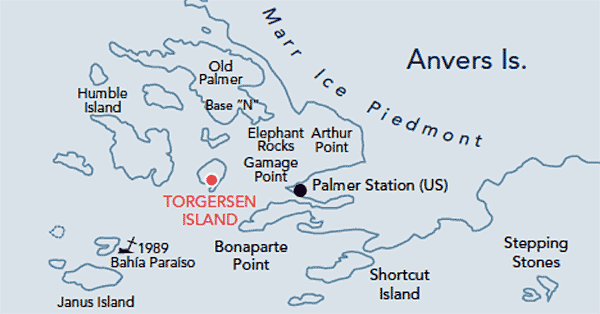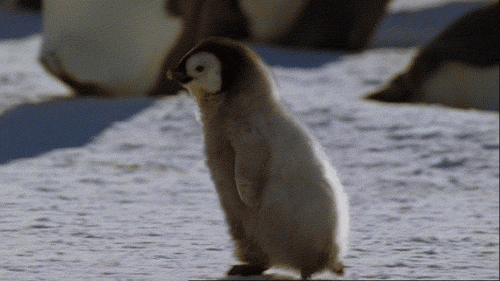Natalie Whiting reported this story on Monday, March 28, 2016
KIM LANDERS: Against expectations a determined colony of little penguins in South Australia is fighting back after years of population decline.
Mystery still surrounds why there was a dramatic drop in birds on Granite Island. Numbers fell from more than 1500 to between 20 and 30.
While researchers say the population is stabilising, locals could now be putting the birds at risk by
using torches and bringing dogs onto the island.
Our reporter Natalie Whiting visited Granite Island and filed this report.
STEVE HEDGES (excerpt from penguin tour): Stephen is my name and I am looking forward to tonight's tour...
NATALIE WHITING: It's dusk on Granite Island, just off the coast of Victor Harbour, and local Steve Hedges is leading a penguin tour.
STEVE HEDGES (excerpt from penguin tour): We're going to start our tour here. This is probably one of their favourite landing spots just in here where...
NATALIE WHITING: It's harder to spot a penguin here than it once was.
STEVE HEDGES (excerpt from penguin tour): All right, looks like no-one's in tonight.
NATALIE WHITING: March is also a notoriously hard time to find penguins because they aren't breeding.
(Sounds of people walking)
NATALIE WHITING: A small group of tourists follows as he searches burrows.
So it took a little over an hour, but we did end up finding one. What can you tell us about this penguin in front of us?
STEVE HEDGES: Well, it appears to be a male because we are getting a little bit of a growl coming back.
But it's been fascinating that this one has been coming in and staying in for nearly a week now, which is a surprise because normally I would be thinking it would be getting hungry and heading off.
NATALIE WHITING: In 2012 there were 1500 penguins on the island. That's slowly declined until 2012 when just 28 penguins were counted.
The figures from last year's census have just been released. Twenty-two birds were recorded.
Dr Diane Colombelli-Negrel is a penguin ecologist at Flinders University and has been studying the fall in penguin numbers for three years.
A number of factors are thought to have contributed to the decline.
DIANE COLOMBELLI-NEGREL: Well at the moment, the big emphasis is on parasites because we know that on small population that can have a drastic impact.
NATALIE WHITING: Now that the colony has stabilised, Dr Colombelli-Negrel says the population needs ongoing protection to rebuild.
DIANE COLOMBELLI-NEGREL: This is very important with a small number to be careful about how people behave with those penguins and to be aware that they're there.
NATALIE WHITING: Unfortunately the big drop has convinced many people that the penguins are gone.
DIANE COLOMBELLI-NEGREL: Every single day that we're out there working on the penguins, we have comments from people saying, "there's no penguin life on the island".
We are trying to run some workshops, some public talks, but we are not getting a lot of interest because I think a lot of people think there's no penguins anymore.
NATALIE WHITING: There's concern about people making a lot of noise or using torches at night. The white light can blind the penguins for hours.
But Steve Hedges believes word is spreading in the community about the remaining penguins.
There's also a dedicated group of locals helping the birds.
STEVE HEDGES: We are monitoring every night on Granite Island. There's a lot of people interested, lots of people keen.
NATALIE WHITING: There is some rejuvenation work happening, some burrows been built and plants that the penguins will appreciate.
How important is that sort of work in hoping to attract and keep the colony?
STEVE HEDGES: I think it's crucial because if all the factors that are putting them under pressure maybe out at sea, it could be their health, it could be food, it could be climate factors, if their home, where their burrows are, if we can do the best we can with that part of their lives, if we can make that part of it successful, then we're doing all, hopefully all we can.
KIM LANDERS: Granite Island penguin tour guide Stephen Hedges ending Natalie Whiting's report.

















No comments:
Post a Comment